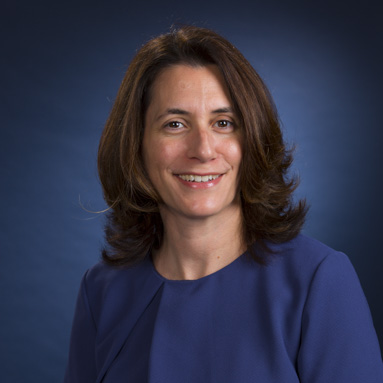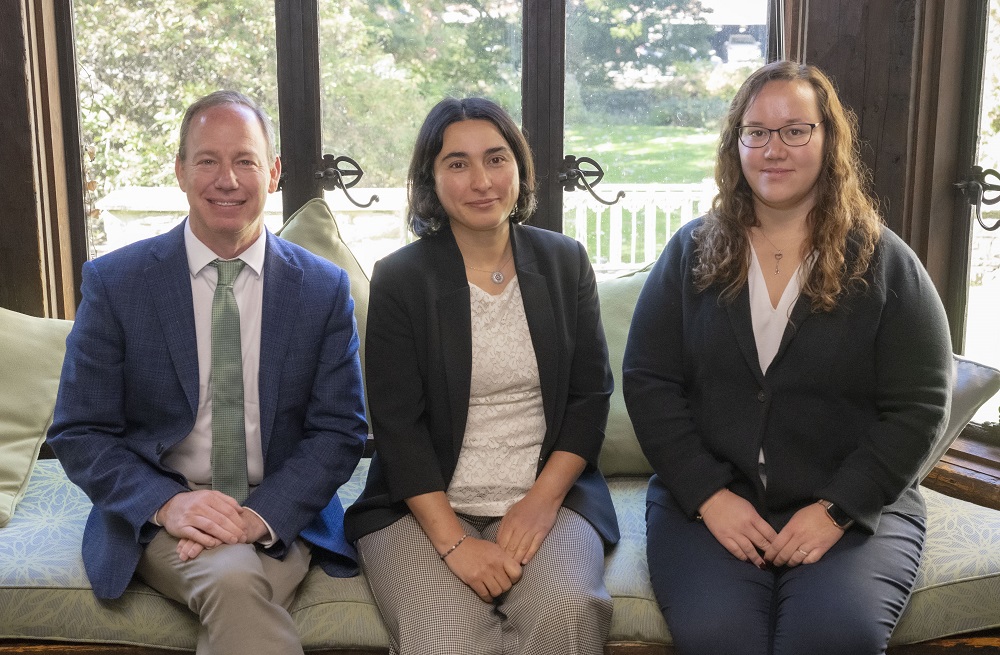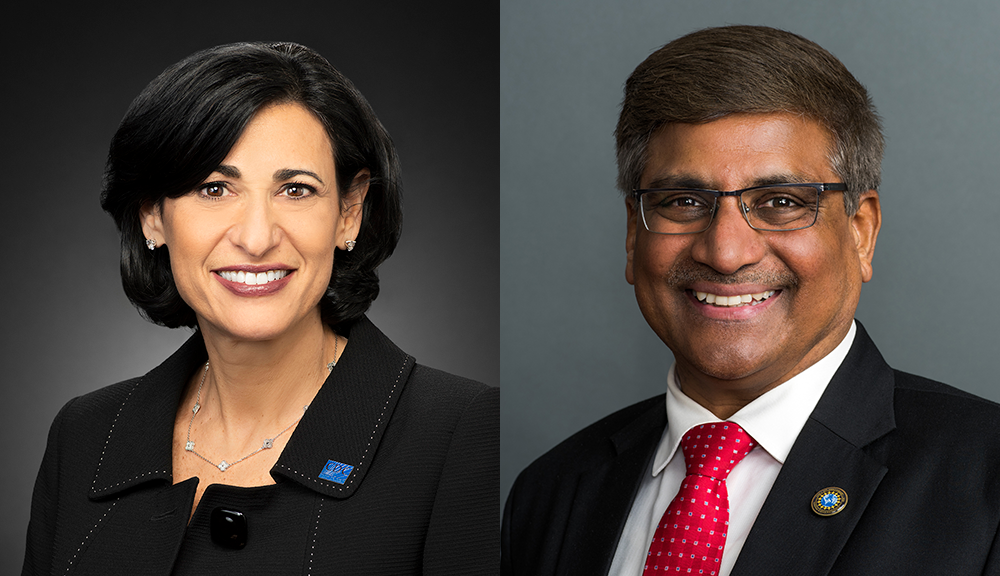Targeting the intersection of stress and overeating, an interdisciplinary research team at the University of Massachusetts Medical School (UMMS) and Worcester Polytechnic Institute (WPI) has received a $2 million award from the National Institutes of Health to create an interactive smartphone application to help patients struggling with obesity and emotional eating.
Development of the "RELAX" application and a pilot clinical study to evaluate its effectiveness will be led by Sherry Pagoto, PhD, associate professor of medicine at UMMS, and Bengisu Tulu, PhD, associate professor in the WPI Foisie School of Business, joint principal investigators for the grant.
"Most commercial apps available today focus on tracking diet and exercise, but do not help the user understand why they are eating so much and/or exercising so little," Dr. Pagoto said. "Our clinical and research experience suggests that stress is a very common trigger for overeating and it is a barrier to exercise."
RELAX will have two components: a mobile application that will enable patients to track their daily activities using a smartphone and a web-based tool clinicians can use to access patient information to help inform treatment.
"We want to use technology to help patients in real time, during their daily activities, and also to enhance the effectiveness of the time they spend face-to-face with their physician or counselor," Dr. Tulu said.
Using text inputs, barcode scanning, and GPS technology, the RELAX patient app will track eating patterns, daily activities, exercise, patient-mood, and stress inducing events. The app will provide the patient with an itemized list of foods consumed, indicate the times of day identified as high-stress moments, and illustrate the relationship between food intake and stress. The information collected will help the user to better understand his or her habits when it comes to emotional or stress eating.
For example, the patient-facing application will provide coaching for dietary choices or guided stress-reduction exercises to lessen the likelihood of overeating.
“Imagine a person driving into the parking lot of a fast-food restaurant, at a certain time of day, and getting prompted with a message asking them to think about what they are feeling and whether or not it is the right time to eat,” Tulu said.
Clinicians will be able to access their patients’ information collected through the RELAX patient app using the web-based application. The web tool will present information as easily digestible visual displays and feedback reports for the clinician to review.
Much of the time during traditional weight-loss counseling sessions is spent reviewing paper self-monitoring records and soliciting information from the patient about factors impacting their adherence, such as stress and stress eating. By using the RELAX web tool, clinicians can more quickly get to the heart of causal factors behind the patient’s eating habits, which can be difficult to identify using traditional counseling. The research team believes RELAX will help patients achieve better outcomes with fewer visits to their doctor or counselor.
The researchers hope the interactive design and the clinician’s ability to engage with the patient in a more data-rich way, both unique features of the RELAX application, will enable a more comprehensive approach to counseling patients about weight and stress management.
"We too often think of clinical problems in isolation and develop interventions focused on one problem," Pagoto said. "The reality is that patients more often than not experience multiple issues that are very entangled. Just like clinical care, apps need to address the ’whole patient’ to be maximally effective."
RELAX is a three-year project. The first phase will establish the clinical and technical requirements for the mobile app and web-based tools. The second phase will cover technology development and usability analysis. The final phase will be a pilot clinical trial of the prototype RELAX applications with patients at UMMS and an analysis of the application’s impact on program delivery and costs.
"Part of our hypothesis is that the RELAX applications will result in a more cost-effective way to deliver this clinical program, so we also want to test that," Tulu said. "The grant includes a rigorous business-case analysis of the prototype and pilot trial."
RELAX is the latest in a series of collaborative research and development projects that blend the clinical and behavioral science expertise at UMMS with the engineering and computer science capabilities at WPI to help improve patient outcomes. Previous joint projects include development of a mobile application to promote weight management and a novel application and imaging system to help people with severe diabetes better manage their condition.
Also working on the RELAX program as co-investigators are UMMS faculty Edwin Boudreaux, PhD, professor of emergency medicine; James Carmody, PhD, associate professor of medicine; and Yunsheng Ma, MD, PhD, associate professor of medicine. The WPI co-investigators are Emmanuel Agu, PhD, associate professor of computer science; and Justin Wang, PhD, assistant professor, WPI Foisie School of Business.
About Worcester Polytechnic Institute
Founded in 1865 in Worcester, Mass., WPI is one of the nation’s first engineering and technology universities. Its 14 academic departments offer more than 50 undergraduate and graduate degree programs in science, engineering, technology, business, the social sciences, and the humanities and arts, leading to bachelor’s, master’s and doctoral degrees. WPI’s talented faculty work with students on interdisciplinary research that seeks solutions to important and socially relevant problems in fields as diverse as the life sciences and bioengineering, energy, information security, materials processing, and robotics. Students also have the opportunity to make a difference to communities and organizations around the world through the university’s innovative Global Projects Program. There are more than 40 WPI project centers in the Americas, Africa, Asia-Pacific, and Europe.
About UMass Medical School
The University of Massachusetts Medical School (UMMS), one of five campuses of the University system, comprises of the School of Medicine, the Graduate School of Biomedical Sciences, the Graduate School of Nursing, a thriving research enterprise and an innovative public service initiative, Commonwealth Medicine. Its mission is to advance the health of the people of the commonwealth through pioneering education, research, public service and health care delivery with its clinical partner, UMass Memorial Health Care. In doing so, it has built a reputation as a world-class research institution and as a leader in primary care education. The Medical School attracts more than $240 million annually in research funding, placing it among the top 50 medical schools in the nation. In 2006, UMMS’s Craig C. Mello, PhD, Howard Hughes Medical Institute Investigator and the Blais University Chair of Molecular Medicine, was awarded the Nobel Prize in Physiology or Medicine, along with colleague Andrew Z. Fire, PhD, of Stanford University, for their discoveries related to RNA interference (RNAi). The 2013 opening of the Albert Sherman Center ushered in a new era of biomedical research and education on campus. Designed to maximize collaboration across fields, the Sherman Center is home to scientists pursing novel research in emerging scientific fields with the goal of translating new discoveries into innovative therapies for human diseases.






